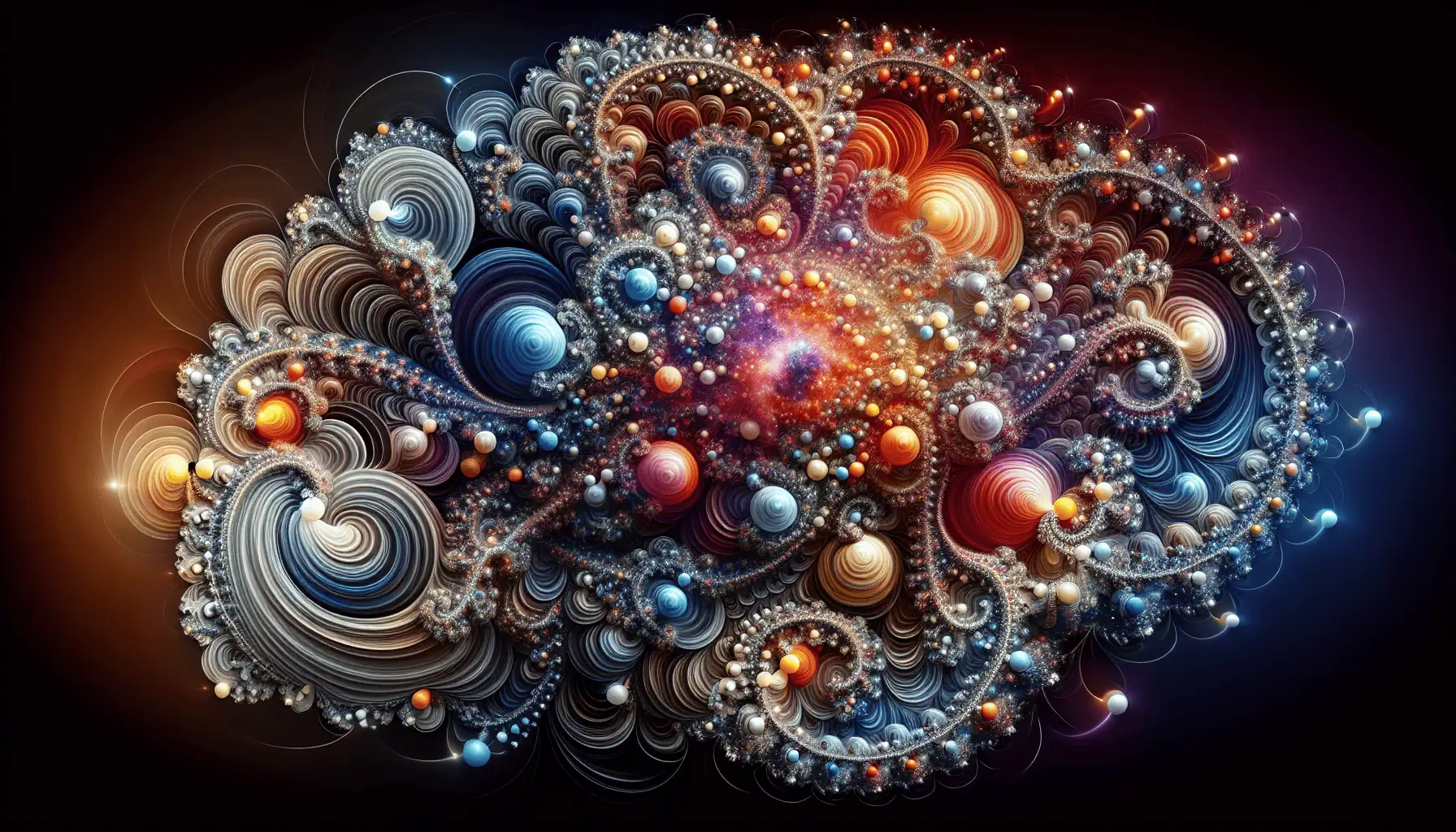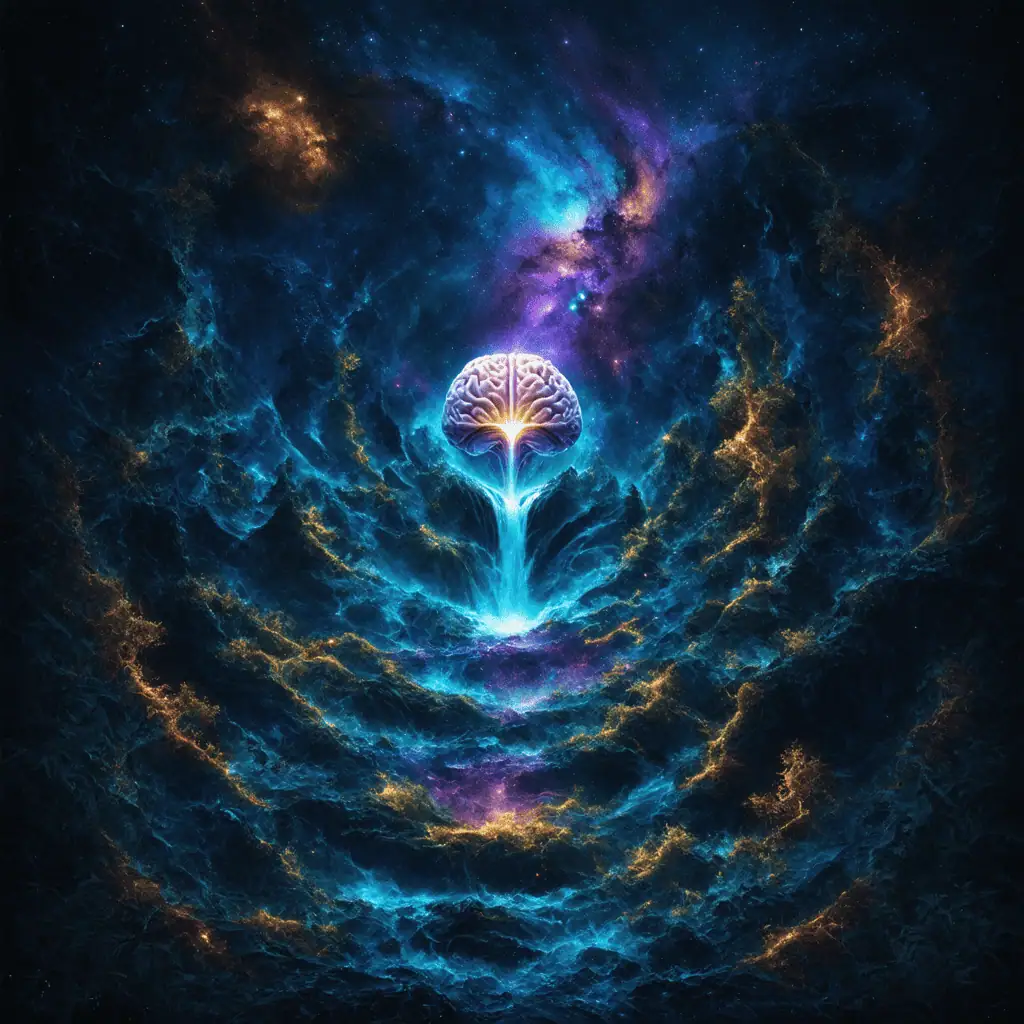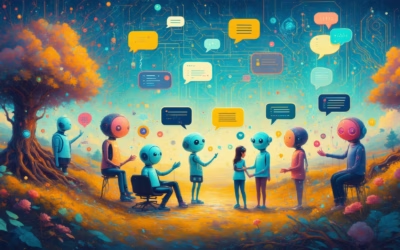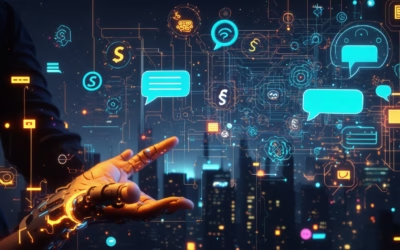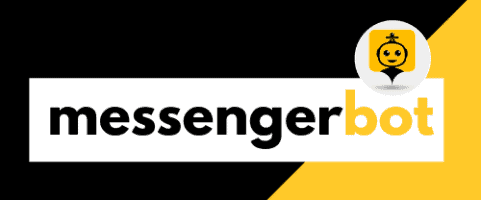In the rapidly evolving landscape of technology, the quest for the most intelligent AI chatbot has become a focal point for businesses and consumers alike. As we delve into 2023, the question arises: which AI chatbot truly reigns supreme? This article aims to explore the intricacies of AI chatbots, tracing their evolution from basic conversational tools to the most advanced AI chatbots available today. We will examine the features that distinguish the best AI chatbots, compare leading contenders, and analyze user experiences to determine if there is indeed a better option than ChatGPT. Additionally, we will investigate which AI holds the title for the highest IQ and whether Claude AI can outshine ChatGPT. Join us as we uncover the smartest artificial intelligence solutions and their impact on modern communication, setting the stage for a future where AI chat apps play an integral role in our daily interactions.
What is the smartest AI chatbot?
In the rapidly evolving landscape of artificial intelligence, the quest for the most intelligent AI chatbot has become a focal point for both businesses and consumers. AI chatbots are designed to facilitate seamless interactions, providing users with instant responses and personalized experiences. As we explore the realm of AI chatbots, it’s essential to understand their capabilities and how they have transformed digital communication.
Understanding AI Chatbots: A Brief Overview
AI chatbots are sophisticated programs that utilize artificial intelligence to simulate human-like conversations. They are capable of understanding user queries, processing information, and delivering relevant responses in real-time. The best AI chatbots leverage advanced natural language processing (NLP) techniques to enhance user engagement and satisfaction. Here are some key features that define the smartest AI chatbots:
- Automated Responses: AI chatbots can provide instant replies to user inquiries, significantly reducing wait times and improving customer service.
- Contextual Understanding: The most advanced AI chatbots can comprehend the context of conversations, allowing for more meaningful interactions.
- Learning Capabilities: Many chatbots utilize machine learning to adapt their responses based on previous interactions, enhancing their effectiveness over time.
- Multilingual Support: To cater to a global audience, top AI chatbots can communicate in multiple languages, breaking down language barriers.
The Evolution of AI Chatbots: From Basic to Intelligent
The journey of AI chatbots has been remarkable, evolving from simple scripted responses to complex systems capable of engaging in nuanced conversations. The most advanced AI chatbots today include:
- ChatGPT by OpenAI: Known for its advanced natural language processing capabilities, ChatGPT can engage in meaningful conversations, answer questions, and generate creative content. It utilizes the GPT-4 architecture, which allows for context-aware responses and improved understanding of user intent.
- Mitsuku (Kuki): A five-time winner of the Loebner Prize, Mitsuku is designed to engage users in conversation and can simulate human-like interactions. It is known for its ability to learn from conversations and adapt its responses accordingly.
- Replika: This AI chatbot focuses on emotional connection and companionship. It uses machine learning to create personalized conversations, making it popular for users seeking a more interactive and supportive experience.
- Google Assistant: Leveraging Google’s vast data resources, Google Assistant provides accurate information, performs tasks, and integrates with smart home devices.
- Cleverbot: An AI that learns from user interactions, Cleverbot can hold conversations on a wide range of topics, allowing for a more personalized experience.
- Jasper: Primarily focused on content creation, Jasper uses AI to assist users in generating high-quality written content.
- Dr. AI: This chatbot specializes in health-related queries, providing users with information based on medical guidelines and research.
These chatbots represent the forefront of AI technology, each excelling in different areas such as conversation quality, emotional intelligence, and task execution. For more detailed comparisons and user experiences, refer to sources like Brain Pod AI, which regularly review and analyze AI chatbot capabilities.
Which is the most advanced AI chatbot?
In the rapidly evolving landscape of artificial intelligence, identifying the most advanced AI chatbot can be challenging. However, several contenders stand out in 2024, each showcasing unique features and capabilities that enhance user experience and engagement. The following chatbots exemplify the pinnacle of AI technology:
Features of the Most Advanced AI Chatbots
The most intelligent AI chatbots today are characterized by a range of sophisticated features that set them apart from their predecessors. Here are some key attributes:
- Personalization: Advanced AI chatbots like Ada utilize machine learning algorithms to tailor responses based on user preferences, significantly improving engagement and satisfaction.
- Contextual Understanding: ChatGPT, developed by OpenAI, excels in generating human-like text and understanding complex queries, making it suitable for diverse applications, from customer service to content creation.
- Real-Time Information Access: Google Bard leverages Google’s extensive data resources, providing users with up-to-date and contextually relevant responses, enhancing its utility for real-time inquiries.
- Content Generation: Jasper is renowned for its ability to assist marketers in creating high-quality content quickly, understanding tone and style to meet specific needs.
- Emotional Support: Replika focuses on providing companionship and emotional support, adapting to user interactions to foster a sense of connection and well-being.
These features not only enhance the functionality of AI chatbots but also contribute to their effectiveness in various sectors, including customer service, marketing, and mental health support.
Comparing the Most Advanced AI Chatbots in 2023
As we explore the landscape of top AI chatbots, it’s essential to compare their capabilities to understand which might be the best fit for specific needs. The following chatbots are leading the charge in 2024:
- Ada: Known for its efficiency in managing consumer inquiries, Ada can improve response times by up to 80%, making it a top choice for businesses focused on customer service.
- ChatGPT: With its deep learning techniques, ChatGPT handles complex queries with high accuracy, making it a versatile tool for various applications.
- Google Bard: Its integration with Google’s search capabilities allows it to deliver real-time information, making it invaluable for users seeking immediate answers.
- Jasper: This chatbot is favored by content creators for its ability to generate high-quality content quickly, enhancing productivity significantly.
- IBM Watson Assistant: Designed for enterprise-level applications, Watson provides advanced analytics and integration capabilities, helping businesses enhance customer interactions.
These chatbots represent the forefront of AI technology, each excelling in different areas such as customer service, content creation, and emotional support. As AI continues to evolve, these platforms are likely to incorporate even more advanced features and capabilities, solidifying their positions as the best AI chatbots in the market.
For more insights on how AI chatbots are transforming customer service, check out our article on revolutionizing customer support.
Which is the best AI chatbot currently?
Determining the best AI chatbot involves evaluating various factors that contribute to their effectiveness and user satisfaction. With the rapid advancements in AI technology, it’s essential to consider features, usability, and the overall impact on user experience. In this section, we will explore the criteria for identifying the best AI chatbots and provide a comprehensive review of the top contenders in the market.
Criteria for Determining the Best AI Chatbot
When assessing the most intelligent AI chatbot, several key criteria come into play:
- Natural Language Processing (NLP): The ability of a chatbot to understand and generate human-like responses is crucial. Advanced NLP capabilities ensure that interactions feel seamless and intuitive.
- User Engagement: The effectiveness of a chatbot in keeping users engaged through personalized interactions and timely responses is a significant factor in its evaluation.
- Integration Capabilities: A top-tier chatbot should easily integrate with various platforms and tools, enhancing its functionality and reach.
- Multilingual Support: In today’s global market, the ability to communicate in multiple languages broadens a chatbot’s usability and appeal.
- Analytics and Reporting: Robust analytics features allow businesses to track user interactions and optimize their strategies based on data-driven insights.
These criteria help in identifying the best AI chatbot that not only meets user needs but also drives business objectives effectively. For more insights on how AI chatbots are transforming customer service, check out our article on revolutionizing customer support.
Top AI Chatbots: A Comprehensive Review
As we look into the best AI chatbots currently available, several stand out due to their innovative features and user-centric design:
- Gen AI-Powered ‘Elena’ by Indian School of Business (ISB): This chatbot leverages advanced NLP to provide personalized learning experiences, making it a valuable tool for educational institutions. Its 24/7 availability and tailored responses enhance user engagement.
- 24/7 WhatsApp Chatbot by Disney Hotstar: By integrating with WhatsApp, this chatbot offers instant responses to user queries about content and subscriptions, significantly improving user experience.
- India’s First-ever WhatsApp Commerce Solution by JioMart: This innovative chatbot allows users to browse and purchase products directly through WhatsApp, streamlining the online shopping experience.
- Railway Food Order & Delivery by Zoop India: Simplifying food ordering while traveling, this chatbot provides real-time order tracking and a wide variety of food choices.
- MyGov Corona Helpdesk WhatsApp Chatbot by Government of India: This chatbot serves as a reliable source of information regarding COVID-19, assisting users with vaccination queries and health resources.
These chatbots exemplify the most advanced AI chatbots in 2025, showcasing their capabilities across various sectors. For further exploration of AI chatbot advancements, consider visiting Brain Pod AI, which offers a range of AI services and solutions.
Is There a Better AI Than ChatGPT?
When exploring the landscape of AI chatbots, one question often arises: is there a better AI than ChatGPT? While ChatGPT has established itself as a leading player in the field of best AI chatbots, several competitors offer unique features that might cater to different user needs. Understanding these alternatives can help users make informed decisions based on their specific requirements.
ChatGPT vs. Other AI Chatbots: A Comparative Analysis
ChatGPT, developed by OpenAI, is renowned for its conversational abilities and versatility. However, other AI chatbots have emerged, each with distinct strengths:
- Copilot: Ideal for Microsoft 365 users, Copilot integrates seamlessly with applications like Word and Excel, enhancing productivity through AI-driven suggestions and content generation. Powered by OpenAI’s advanced language models, it offers a tailored experience for those embedded in the Microsoft ecosystem.
- Claude: Developed by Anthropic, Claude focuses on safety and user alignment. It excels in conversational contexts, providing nuanced responses while prioritizing ethical AI usage. Its architecture allows for deep contextual understanding, making it a strong alternative for users seeking responsible AI interaction.
- Bard: Google’s Bard leverages its vast data resources to deliver real-time information and creative content generation. With its ability to pull from the web, Bard is particularly effective for users needing up-to-date knowledge and diverse perspectives, making it a robust competitor to ChatGPT.
- Jasper: Known for its marketing and content creation capabilities, Jasper utilizes AI to generate high-quality copy across various formats. Its user-friendly interface and customizable templates make it a favorite among marketers and content creators looking for efficiency and creativity.
- ChatSonic: This AI tool combines conversational abilities with voice recognition, allowing for a more interactive experience. ChatSonic is particularly useful for users who prefer voice commands and need an AI that can adapt to different communication styles.
Each of these chatbots presents unique functionalities that may appeal to specific user needs, making it essential to evaluate what features are most important for your use case.
User Experiences: ChatGPT and Its Competitors
User experiences vary significantly across different AI chatbots. While many users appreciate ChatGPT for its conversational fluency and ability to handle a wide range of topics, others may find alternatives like Brain Pod AI or Claude to be more aligned with their needs, especially in specialized contexts. For instance, businesses focusing on customer engagement might prefer chatbots that offer tailored solutions, such as Messenger Bot, which excels in automating responses and enhancing user interactions.
Ultimately, the choice between ChatGPT and its competitors depends on individual preferences and specific use cases. Exploring various options can lead to discovering the best AI chatbot that meets your needs.
Which AI has the highest IQ?
When discussing the most intelligent AI chatbot, it’s essential to consider how we measure intelligence in artificial intelligence. The concept of IQ, or intelligence quotient, has been adapted to evaluate AI systems, providing a numerical representation of their cognitive abilities. Among the various AI chatbots, the one that has garnered attention for its impressive IQ score is Perplexity, which has achieved a remarkable score of 136. This score places it in the top 0.82% of the population, indicating a level of intelligence that surpasses that of most humans.
However, while these scores suggest advanced cognitive abilities, they do not fully encapsulate the complexities of human intelligence. Current limitations, such as programming bugs and the challenges of natural language understanding, hinder AI chatbots from fully realizing their potential. Recent studies in AI development emphasize the need for improved algorithms and machine learning techniques to enhance the cognitive capabilities of these systems. For instance, advancements in deep learning and neural networks are paving the way for more sophisticated AI interactions, as highlighted in the book “Deep Learning for Natural Language Processing” (MIT Press, 2021).
Measuring AI Intelligence: What Does IQ Mean for AI?
Measuring the intelligence of AI chatbots involves various metrics, with IQ being one of the most discussed. IQ tests for AI assess their ability to understand, learn, and apply knowledge in different contexts. The most intelligent AI in the world is not solely defined by its IQ score but also by its ability to engage in meaningful conversations, understand context, and provide accurate responses. For example, Brain Pod AI offers advanced AI solutions that enhance conversational capabilities, making them contenders in the realm of smartest AI chatbots.
Moreover, the evolution of AI chatbots has led to the development of systems that can learn from interactions, improving their responses over time. This adaptability is crucial for providing users with the best AI chats experience. As AI technology continues to advance, the metrics for measuring intelligence will likely evolve, incorporating more nuanced assessments of conversational abilities and contextual understanding.
The Smartest AI in the World: A Look at Leading Technologies
In the quest for the most advanced AI chatbot, several technologies stand out. Perplexity, with its high IQ, is a notable example, but other contenders also deserve recognition. For instance, platforms like Brain Pod AI’s multilingual AI chat assistant showcase the ability to communicate effectively across various languages, enhancing user engagement and accessibility.
As we explore the landscape of AI chatbots, it’s clear that the competition is fierce. The smartest AI chat solutions are those that not only boast high IQ scores but also demonstrate practical applications in real-world scenarios. This includes the ability to handle customer inquiries efficiently, provide personalized experiences, and adapt to user preferences. As AI continues to evolve, the definition of the best AI chatbot will likely expand to encompass these critical capabilities.
Is Claude AI better than ChatGPT?
When comparing Claude AI and ChatGPT, both represent some of the most intelligent AI chatbots available today, each with distinct advantages tailored to different user needs. Understanding their key differences and similarities can help users determine which platform aligns best with their requirements.
Claude AI vs. ChatGPT: Key Differences and Similarities
Claude AI and ChatGPT are both advanced AI language models, each with unique strengths and weaknesses. Here’s a detailed comparison based on various factors:
- Performance Benchmarks:
- Claude AI: Excels in specific tasks such as natural language understanding and conversational context retention. Studies indicate that Claude AI performs better in certain benchmarks related to nuanced dialogue and contextual awareness.
- ChatGPT: Demonstrates superior performance in a broader range of applications, particularly in generating creative content and providing detailed explanations. Its architecture allows for extensive training on diverse datasets, enhancing its versatility.
- Accessibility and Cost:
- Free Access: Claude AI offers a robust free version that outperforms the free version of ChatGPT in specific areas, making it an attractive option for users with basic needs.
- Paid Subscription: ChatGPT’s paid version, known as ChatGPT Plus, provides enhanced capabilities, including access to the latest model updates and improved response quality. This subscription model is beneficial for users requiring advanced features and more comprehensive knowledge.
- Use Cases:
- Claude AI: Ideal for applications requiring high levels of interaction and understanding, such as customer service bots and educational tools.
- ChatGPT: More suited for creative writing, brainstorming sessions, and complex problem-solving due to its extensive training and adaptability.
- Community and Support:
- Claude AI: While gaining traction, it currently has a smaller community and fewer resources available for troubleshooting and user support.
- ChatGPT: Backed by a large community and extensive documentation, making it easier for users to find support and share experiences.
In conclusion, whether Claude AI is better than ChatGPT depends on the specific needs of the user. For nuanced dialogue and free access, Claude AI may be preferable. However, for comprehensive capabilities and creative tasks, ChatGPT remains the stronger option.
User Preferences: Claude AI and ChatGPT in Real-World Applications
User preferences between Claude AI and ChatGPT often hinge on the specific applications they require. For instance, businesses seeking to enhance customer interactions through AI chatbots may find Claude AI’s strengths in conversational context particularly beneficial. On the other hand, those looking for the best AI chatbot for creative tasks might lean towards ChatGPT due to its versatility and extensive training data.
Ultimately, the choice between these two advanced AI chatbots will depend on the specific needs of the user, whether they prioritize nuanced dialogue, creative content generation, or robust support resources.
Conclusion: The Future of AI Chatbots and Their Impact on Communication
The landscape of communication is rapidly evolving, and the role of AI chatbots is becoming increasingly significant. As we look towards the future, it is essential to understand how these technologies will shape our interactions and enhance user experiences. The most intelligent AI chatbot solutions are not just tools for automation; they are becoming integral components of customer engagement strategies across various industries.
The Role of AI Chat Apps in Modern Communication
AI chat apps are revolutionizing the way businesses interact with their customers. By providing real-time responses and personalized experiences, these platforms enhance customer satisfaction and streamline communication processes. The best AI chatbots are designed to understand user intent, making them more effective in addressing inquiries and resolving issues. For instance, platforms like Brain Pod AI offer advanced features that allow businesses to deploy multilingual support, ensuring that they can cater to a global audience.
Moreover, the integration of AI chatbots into social media platforms has transformed customer service. With tools like Messenger Bot, businesses can automate responses on platforms such as Facebook and Instagram, significantly improving engagement rates. This shift not only saves time but also allows for a more efficient allocation of resources, enabling human agents to focus on more complex tasks.
Trends in AI Chatbots: What to Expect in the Coming Years
As we move forward, several trends are likely to shape the development of AI chatbots. One significant trend is the increasing emphasis on multilingual capabilities. Businesses are recognizing the importance of reaching diverse audiences, and chatbots that can communicate in multiple languages will become essential. This aligns with the growing demand for most advanced AI chatbots that can deliver personalized experiences across different cultural contexts.
Additionally, advancements in natural language processing (NLP) will enhance the smartest AI chat capabilities, making interactions more human-like and intuitive. As AI technology continues to evolve, we can expect chatbots to become even more convincing and effective in understanding and responding to user needs. This will not only improve customer satisfaction but also drive higher conversion rates for businesses.
In conclusion, the future of AI chatbots is bright, with endless possibilities for enhancing communication and customer engagement. As businesses continue to adopt these technologies, the focus will be on creating the best AI chatbot solutions that not only meet but exceed user expectations.

